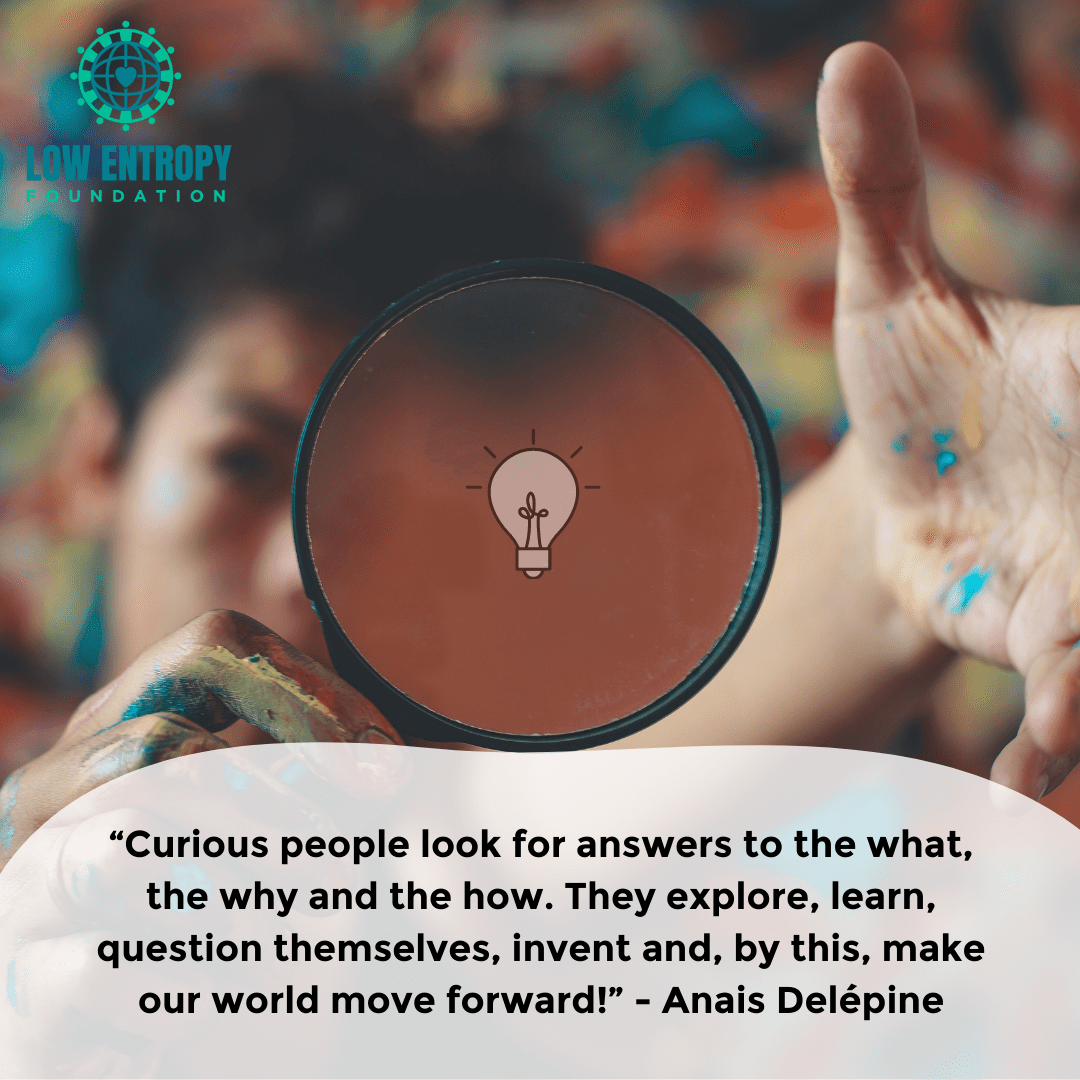Anais Delépine, Low Entropy Volunteer Writer
Parents are sometimes annoyed with their children constantly asking “why” and being nosy about everything and anything. Is curiosity a bad thing?
How could it be? It is a natural human trait! Curious people look for answers to the what, the why and the how. They explore, learn, question themselves, invent and, by this, make our world move forward!
Imagine a world without curiosity …
Every ocean, territory and everything humankind has discovered would be unknown.
No technical breakthroughs and therefore no cars, no planes, no trip to Mars!
Every person on this planet would be living their lives without letting anything happen in them, living dull lives.
No connections between people, therefore no languages, no books, no cultures!
See what a world with curiosity looks like …
Near the end of the 15th century, the Portuguese navigator Vasco da Gama discovered the sea route to Asia around Africa. By the start of the 19th century, the spice trade was well developed and all kinds of spices started enhancing the flavor of our food dishes … cinnamon, cardamom, cloves, pepper, nutmeg, saffron, turmeric!
In the late 1800s, Louis Pasteur, a French chemist and microbiologist, discovered the principles of vaccination. Thanks to vaccines, humankind was protected from many diseases!
Albert Einstein said, “I have no special talents. I am only passionately curious.” He is now famous for his theory of relativity, published in 1905, which revolutionized our understanding of space, time, gravity and the universe.
More recently, in 1989, Tim Berners-Lee, a British computer scientist, invented the World Wide Web which today facilitates millions of industries and lifestyles around the world.
Our choice is obvious: let’s all be more curious!
—
Leave your thoughts for Anais in the comments below – better yet, start up a dialogue with the Low Entropy community in person, at a Conscious Connections meeting or online at our community site. You can also follow us on Facebook, Instagram, TikTok, Twitter and YouTube to stay up-to-date with Low Entropy news!







